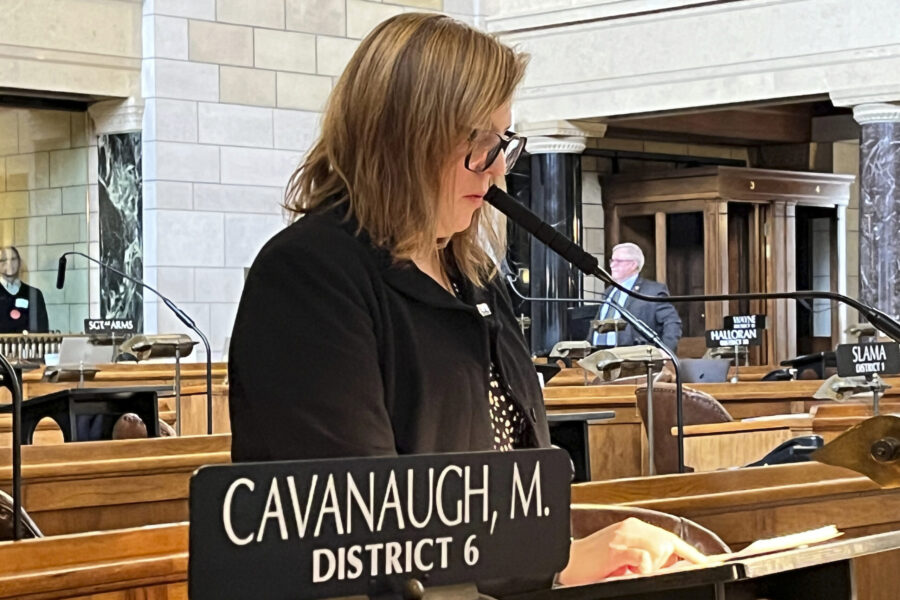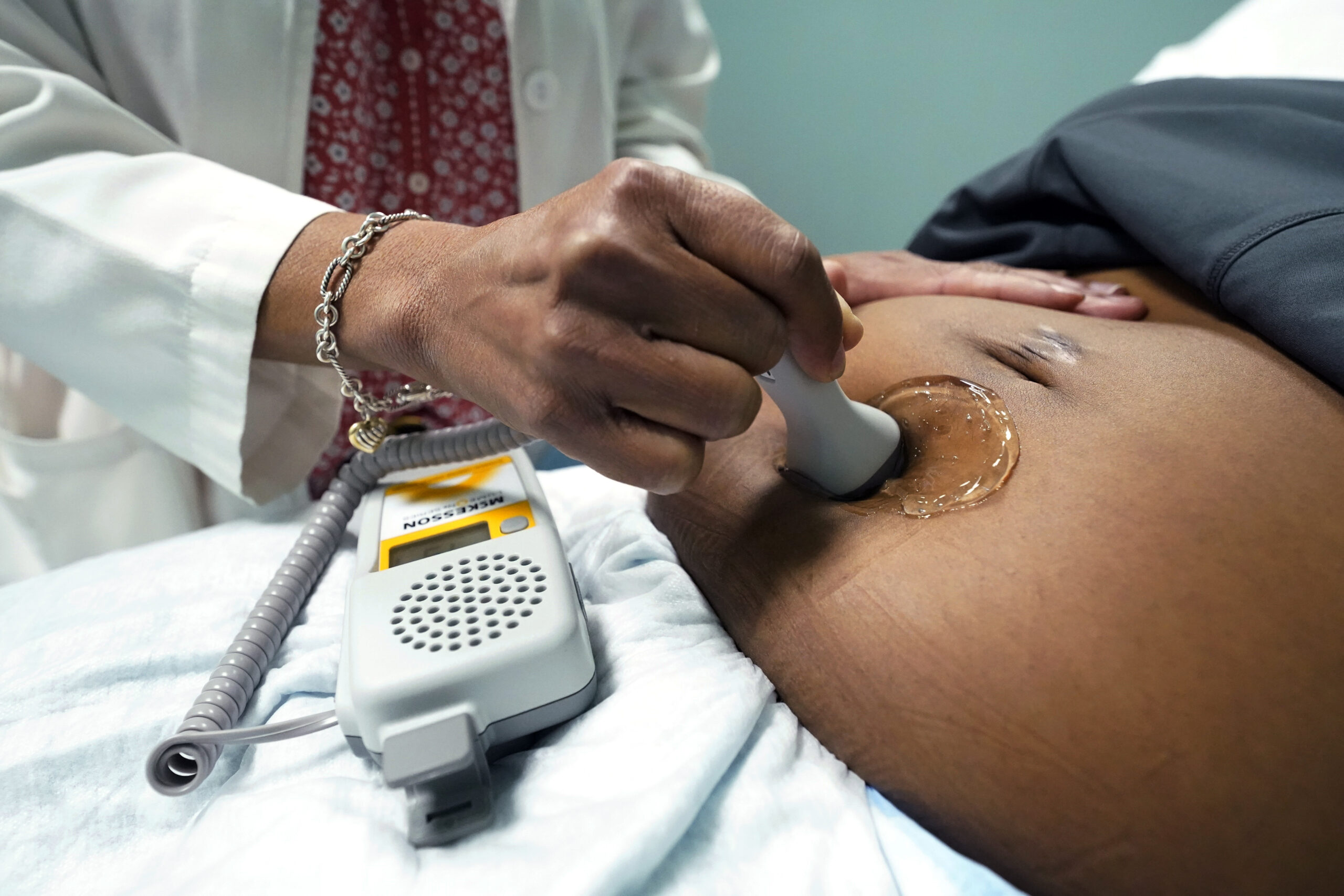Debate on Nebraska gender health care for minors bill gets combative
Mar 21, 2023, 4:01 PM | Updated: 4:54 pm

FILE - State Sen. Machaela Cavanaugh speaks before the Nebraska Legislature on March 13, 2023, at the Nebraska State Capital in Lincoln, Neb. Cavanaugh had followed through on her vow in late February to filibuster every bill before the Legislature — even those she supported — before reaching an agreement to debate a bill that would ban gender-affirming treatment for minors in Nebraska. (AP Photo/Margery Beck, File)
Credit: ASSOCIATED PRESS
(AP Photo/Margery Beck, File)
LINCOLN, Neb. (AP) — Debate that began Tuesday on a Nebraska bill to ban gender-affirming care for minors, which led one lawmaker to stage an epic weekslong filibuster, quickly grew contentious, with supporters and opponents angrily voicing their frustration and admonishing each other for a lack of collegiality.
Sen. John Lowe, of Kearney, cited an activist group’s claim that gender dysphoria in youth “is just temporary,” while Sen. Brad von Gillern, of Omaha, compared gender-affirming treatment to shock treatments, lobotomies and forced sterilizations of years’ past. Bellevue Sen. Carol Blood countered that if lawmakers really cared about medical procedures affecting children, “how come we’re not talking about circumcision?”
And that was only the first three hours of an eight-hour Senate debate expected to stretch into Thursday.
The bill introduced by Republican Sen. Kathleen Kauth, a freshman lawmaker in the officially-nonpartisan state Legislature, would outlaw gender-affirming therapies such as hormone treatments, puberty blockers and gender reassignment surgery for those 18 and younger.
The proposal had already caused tumult in the legislative session, cited as the genesis of a nearly three-week filibuster carried out by Omaha Sen. Machaela Cavanaugh over her opposition. Cavanaugh had followed through on her vow in late February to filibuster every bill before the Legislature — even those she supported — declaring she would “burn the session to the ground over this bill.”
She stuck with it until an agreement was reached late last week to push the bill to the front of the debate queue. Instead of trying to eat time to keep the bill from getting to the floor, Cavanaugh decided she wanted a vote to put on the record of which lawmakers would “legislate hate against children.”
Lawmakers convened Tuesday to begin that debate with the understanding that the bill didn’t have enough votes to break a filibuster. But Kauth introduced an amendment to drop the restriction on hormone treatments, instead banning only gender reassignment surgery for minors. That amendment, she said, does have enough votes to advance.
Cavanaugh has said if the bill advances on a vote expected Thursday, she will resume filibustering every bill through the end of the 90-day session in early June.
The hard feelings by lawmakers on both sides of the bill emerged almost immediately Tuesday, with Kauth calling Cavanaugh’s filibuster “self-serving and childish.” Kauth said the purpose of her bill is to protect youth from undertaking gender-affirming treatments they might later regret as adults, citing research that says adolescents’ brains aren’t fully developed.
Omaha Sen. Megan Hunt called out that argument as hypocritical, noting that Kauth supports an abortion ban bill introduced this session that would also affect adolescents.
“In a couple of weeks, she’s going to turn around and vote for a bill that would force 12-year-olds to have a baby,” Hunt said. “She thinks they’re mature enough for that.”
Cavanaugh called the trans treatment bill “an assault on individuals that members of this body love,” and appealed to Republican members of the body to get back to their core principles of getting government out of people’s lives.
“So many of you have talked to me about government overreach time and time again,” she said. “This bill stands in opposition to the tenets that many of you have expressed to me are the foundation of why you are here.”
The Nebraska bill, along with another that would ban trans people from using bathrooms and locker rooms or playing on sports teams that don’t align with the gender listed on their birth certificates, are among roughly 150 bills targeting transgender people that have been introduced in state legislatures this year.
Bans on gender-affirming care for minors have already been enacted this year in some Republican-led states, including Georgia sending to the governor Tuesday a bill that would ban most gender-affirming surgeries and hormone replacement therapies for transgender minors.













